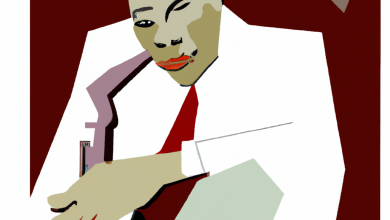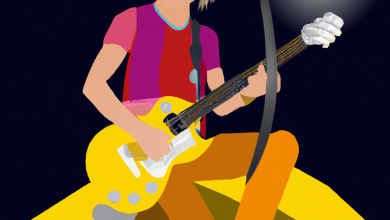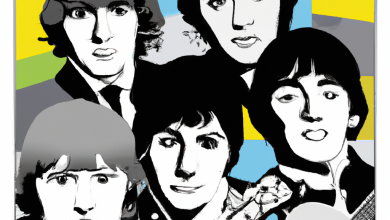
I. Introduction
The Feminist Movement in Western Music has been an ongoing journey for decades, with a significant impact on popular culture worldwide. The music industry has been a platform for women to express themselves and demand equality, raise awareness about important social issues, and challenge stereotypes that have limited women’s representation in the industry. The movement has been a force that has grown stronger with time, empowering women and creating space for new voices in the industry.
Brief History of the Feminist Movement in Music
The Feminist Movement in Music started in the 60s and 70s with the emergence of artists such as Joni Mitchell, Joan Baez, and Carole King. These artists used music as a tool to fight against social norms and patriarchy, establish their identities, and empower women. The movement became a landmark in the feminist movement and part of the cultural revolution of the time.
In the 80s, the movement saw a significant shift, with the emergence of pop and rock icons such as Madonna, Janet Jackson, and Cyndi Lauper, among others. These artists were not only pioneers but also became icons of their time through their music videos, visual identity, and outspoken activism. They challenged the male-dominated music industry and fought for gender and sexuality acceptance.
The 90s and 2000s brought in a new wave of feminism in music, with artists such as Missy Elliot, Lauryn Hill, and Alanis Morissette, who placed a strong emphasis on female empowerment, self-acceptance, and social justice. They were instrumental in defining the genre of Pop-Rock, R&B, and Hip Hop by incorporating feminist values in their lyrics and music videos.
Aim of the Article
The aim of this article is to provide a comprehensive overview of the Feminist Movement in Western Music, tracing its history and evolution from the 60s to the present day. It also aims to highlight the contributions and achievements of leading Feminist Musicians, past, and present, as well as the challenges they encountered. Furthermore, it seeks to examine the impact of the movement on social change, gender representations, and the music industry at large.
Definition and Concept of Feminism in Music
Feminism in music refers to the use of music as a platform to express feminist ideals and advocate for women’s rights. It is about challenging gender discrimination and objectification, promoting female representation and empowerment, and raising awareness about social justice issues. Feminist Musicians use their music to champion these ideals, and their lyrics, music videos, and artistic identity reflect their values. The concept of Feminism in music is about challenging gender norms in society and calling for change through music.

II. Early Days of the Feminist Movement in Music
The early days of the feminist movement in Western music trace back to the 1960s and 70s when the feminist revolution was taking shape across all aspects of society. The feminist ideology, which was more popularly defined as women’s liberation, was adopted by an increasing number of musicians who added the fight for gender equality to their repertoire.
During this time, feminist music was characterized by its diverse forms and sounds. The genre largely expressed feminist ideas and movements, with artists striving to convey messages of liberation and equality for women. At the front of the early feminist music movement were artists such as Joni Mitchell, Janis Joplin, Joan Baez, and Carole King.
One of the most notable singers of the period was Joni Mitchell who was known for her soulful voice and powerful lyrical content. Her album “Blue,” released in 1971, was a pivotal moment in the feminist music movement as it included songs that covered complex topics such as identity, relationships, and societal expectations of women. Mitchell sang of the real experiences of women and normalized their emotions, which were often seen as taboo.
Janis Joplin was another feminist music icon of the 60s and 70s. Joplin was a raw and honest artist who sang of her struggles with gender expectations and norms. Her music blended rock and folk, which lent itself to her distinctively husky and emotive voice. Her song “Me and Bobby McGee” released posthumously in 1971, became an anthem for the feminist movement and showcased the power of a woman’s voice to shape societal discourse.
Joan Baez, on the other hand, was an activist troubadour who was known for her soulful voice and activism for civil rights, anti-war and feminist causes. Her songwriting and activism inspired a generation of women who looked to her as a role model. One of the most exceptional aspects of her work was that there was a simplicity to it all. She often used folk tunes in her music and sang of life’s most complicated struggles with a clear and steady voice.
Lastly, Carole King was a defining feminist voice of the 60s and 70s. King’s music was open and honest, and her feminist works like “You’ve Got A Friend” and “Natural Woman” became rallying cries for women’s movements of the era. Her music was often praised, as it integrated seamlessly into daily life reflected in the way her audiences heard and experienced her music.
In summary, the early days of the feminist music movement heralded a revolution. The efforts of these feminist music pioneers facilitated the mainstreaming of the feminist ideology in the music industry. They paved the way for future generations of women in music to be vocal and fight for gender equality through their music.
III. The 80s – A Turning Point for Feminism in Music
The 80s was a significant turning point for feminism in western music. As women’s rights and gender equality continued to gain momentum, female performers began to use their music as a means of expressing their feminist ideals. The rise of punk and new wave in the late 70s paved the way for female artists such as Debbie Harry, Chrissie Hynde, and Joan Jett. These pioneers helped to break down barriers and challenge the male-dominated music industry.
One of the most notable achievements of the feminist movement in the 80s was the formation of the Lilith Fair music festival. Launched in 1997 by Canadian musician Sarah McLachlan, the festival was a celebration of women in music, featuring female artists from a range of genres. The festival was a huge success and ran for three years, helping to give a platform to many lesser-known female musicians.
In addition to Lilith Fair, the 1980s saw the emergence of female artists who used their music to address issues such as sexual harassment, reproductive rights, and domestic violence. Artists such as Tracy Chapman, Madonna, and Cyndi Lauper used their music to address these important issues, helping to bring them further into the public consciousness.
However, the feminist movement was not without its challenges in the 80s. Despite the success of Lilith Fair and the growing number of female performers, the music industry remained heavily male-dominated. Women continued to face discrimination and sexual harassment in the workplace, and many female artists struggled to gain recognition for their work.
Despite these challenges, the feminist movement in the 80s laid the groundwork for future generations of female performers. The achievements of this decade helped to bring issues of gender equality further into the public consciousness, paving the way for future progress in the music industry.
IV. The 90s and 2000s: the Re-emergence of Feminism in Music
The 90s and 2000s marked the re-emergence of Feminism in Western music. With the rise of alternative music genres such as grunge, punk rock, and hip hop, feminists found their voices in music once more. The third wave of feminism saw women take center stage in music, with their lyrics focused on sexuality, empowerment, and social change.
Leading the feminist charge in the 90s and 2000s were musicians such as Alanis Morissette, Madonna, TLC, and Courtney Love. Their music explored themes surrounding gender, sexuality, and cultural norms that sought to define and confine women’s place in society. For instance, Alanis Morissette’s album “Jagged Little Pill” was an instant hit, with the track “You Oughta Know” controversially addressing the intricacies of female sexuality and infidelity.
TLC’s album “CrazySexyCool” was one of the most commercially successful albums of 1994. The album, with its themes of empowerment and female solidarity, became a beacon for many feminists at the time. Madonna’s career has been characterized by several feminist themes, notably her sexualized performances, and her critiques of the sexism in the music industry. In 2003, she released the song “American Life,” which dealt explicitly with gender norms and media created beauty standards.
However, the 90s and 2000s were marked by their own set of challenges. Despite their achievements, women in the music industry still faced sexism, objectification, and misogyny. Female musicians were forced to navigate the male-dominated industry that often commodified female sexuality, leading to a constant struggle between promoting their sexuality to achieve success and maintaining their autonomy and integrity.
Despite these challenges, the 90s and 2000s mark an essential period of feminist music history. Women in music used their platforms to challenge societal expectations, raise awareness on gender and sexuality, and inspire young women to be confident in themselves. This era of feminist music laid a solid foundation for the further evolution of feminist music in the 21st century.
V. The Current State of Feminism in Western Music
Overview of Feminist Music in the 2010s:
The 2010s saw a resurgence of the feminist movement in Western music, with many artists using their platform to express their views on gender equality, sexual autonomy, and other feminist issues. Women in the music industry began speaking out against the gender pay gap, objectification, and other issues that they faced. The general public and the music industry itself have also been more accepting of feminist artists, leading to increased visibility and opportunities for those who identify as feminists.
Examples of leading Feminist Musicians of the era:
One of the most well-known feminist musicians of the 2010s is Beyoncé, who has incorporated feminist themes into her music and performances. Her 2016 album, “Lemonade,” featured a range of themes, from infidelity to female empowerment, and included references to Black Lives Matter and police brutality. Other feminist artists of the era include Taylor Swift, who has been vocal about her feminist beliefs, and Lady Gaga, who has been an advocate for LGBTQ+ rights and mental health awareness.
Social media and its impact on the Feminist Movement in Music:
Social media has played a significant role in the feminist movement in music in the 2010s. Platforms like Twitter and Instagram have given artists the opportunity to connect with their fans and express their opinions more easily. Social media has also been used to call out issues within the music industry, from the gender pay gap to sexual harassment.
Future Outlook:
While there has been progress in the fight for gender equality in music, there is still a long way to go. The music industry has traditionally been male-dominated, and many women still face unequal treatment and objectification. However, the feminist movement in music is continuing to grow, and more women are using their platforms to speak out against these issues. As the feminist movement in music continues to evolve and grow stronger, it is likely that we will see further progress towards gender equality in the industry.
VI. Conclusion
The Feminist Movement in Western Music has come a long way since Bonnie Raitt’s early work in the 1960s. From the early days, when female musicians such as Joni Mitchell, Carole King, and Patti Smith were taking a stand against long-standing societal norms, pop culture has been redefined by feminist ideals. This article has traced the history of the Feminist Movement in Western Music, from the emergence of Folk Revolution in the 60s to the rise of Beyoncé, who is one of the leading feminist icons of our time.
Feminism has challenged traditional music norms, which had formerly been dominated by male singers and songwriters, to open doors for female musicians in a previously male-dominated arena. Audiences are now continuously being exposed to music that speaks to gender equality, gender violence, and other issues relating to feminism.
Celebrities today, like Beyoncé, Lady Gaga, and Taylor Swift, represent the leading voices of feminist ideals in music. With their multi-million dollar platforms, they have raised awareness and encouraged public dialogue around feminist issues. Beyoncé’s visuals are known to be unmistakably feminist, sending messages of representing femininity in all its power in her productions.
It is important to note that social media has played a significant role in the evolving feminist movement in Western music today. Social media platforms such as Twitter and Instagram have given feminist musicians the power to speak directly to their audience and have increased public awareness of feminist issues. They have found a way to express their feminist views and use their platforms to promote more inclusive music culture.
In conclusion, the Feminist Movement in Western Music has achieved much progress in the last few decades. The evolution has given rise to many strong female voices in the pop culture industry. The impact of the movement shows that there is still much progress to be made in the music industry for feminist ideals to be mainstreamed. The role of Feminism in Music, and its relevance today, is one that continues to grow in importance in shaping our understanding of gender equality and social justice.



